API Channel
As an administrative user, you can create an API asset only from the Webex Engage React application. You can update and associate an asset icon as per the channel for which you are creating an API. Additionally, you can share the PI channel asset across different teams. You can transfer conversations within or across teams and assign them to team queues, individual assignees, or skills, just like the behaviour of the channels on the Webex Engage application.
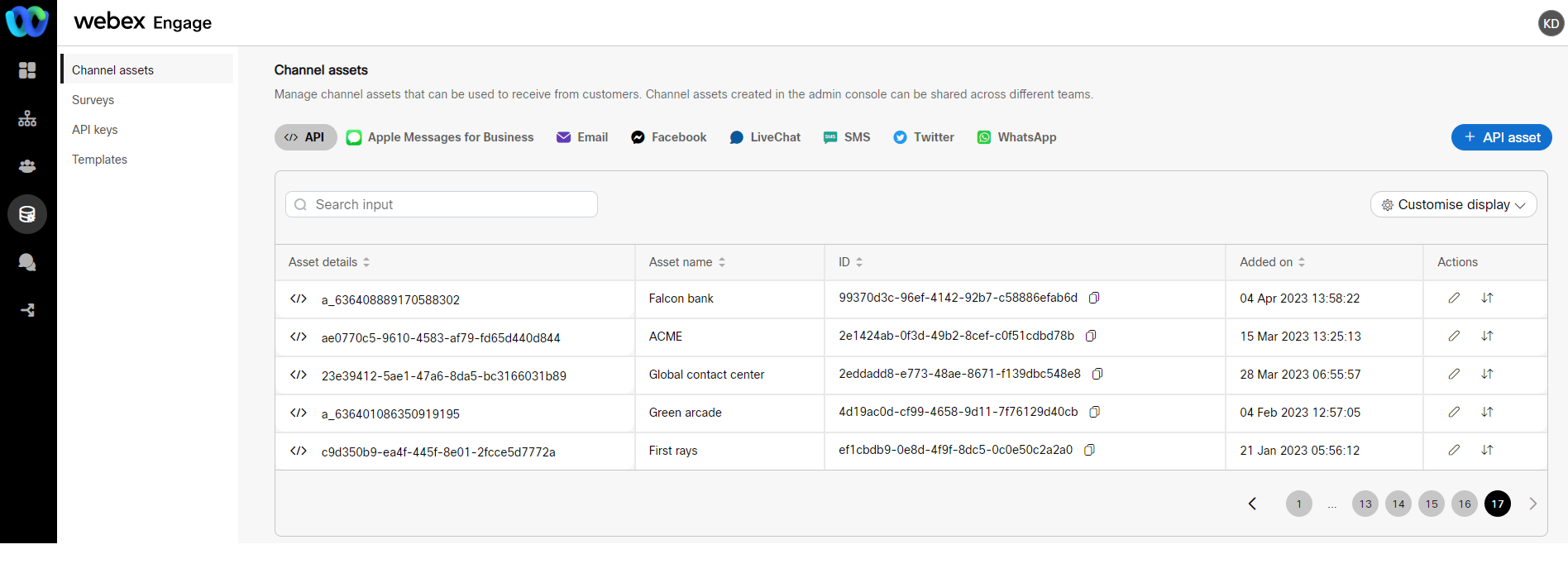
Add an API asset
To create an API asset, follow these steps:
-
Login to the Webex Engage.
-
Click the Try new version button on the top-right corner of the application.
The Webex Engage React application will launch.
- Navigate to Assets> Channel assets.
- Click the API channel tab.
- Click the + API asset on the top-right corner of the Channel assets screen.
The following screen appears.
- Enter the Asset name.
- Click the Edit icon on the asset bubble to associate a channel-specific icon to the API asset.

- You can optionally copy the Business ID by clicking the Copy button. You can use the Business ID in API transactions like create, append, and search endpoints.
- Enter the Outbound notify URL to receive the outbound messages sent by agents and post them to the end user.
- Under Team settings, select a default team from the Default team drop-down list.
- Select teams from the Shared across drop-down list to share the API asset with other teams.
- Turn On the Send auto-responses and system messages when using APIs toggle to process the messages received via APIs against the configured auto-responses, Out-of-Office (OOO) messages, Right to be Forgotten (RTF) messages, unresponsive messages, regex validation, auto-assign to the last agent, and auto-response message for existing chats settings.
- Click Save to create an API asset.
Edit an API asset
To edit an API asset, follow these steps:
-
Login to the Webex Engage.
-
Click the Try new version button on the top-right corner of the application.
The Webex Engage React application will launch. -
Navigate to Assets> Channel assets.
-
Click the API channel tab.

- Click the Edit icon in the Actions column of a specific asset.
The following screen appears on the screen.
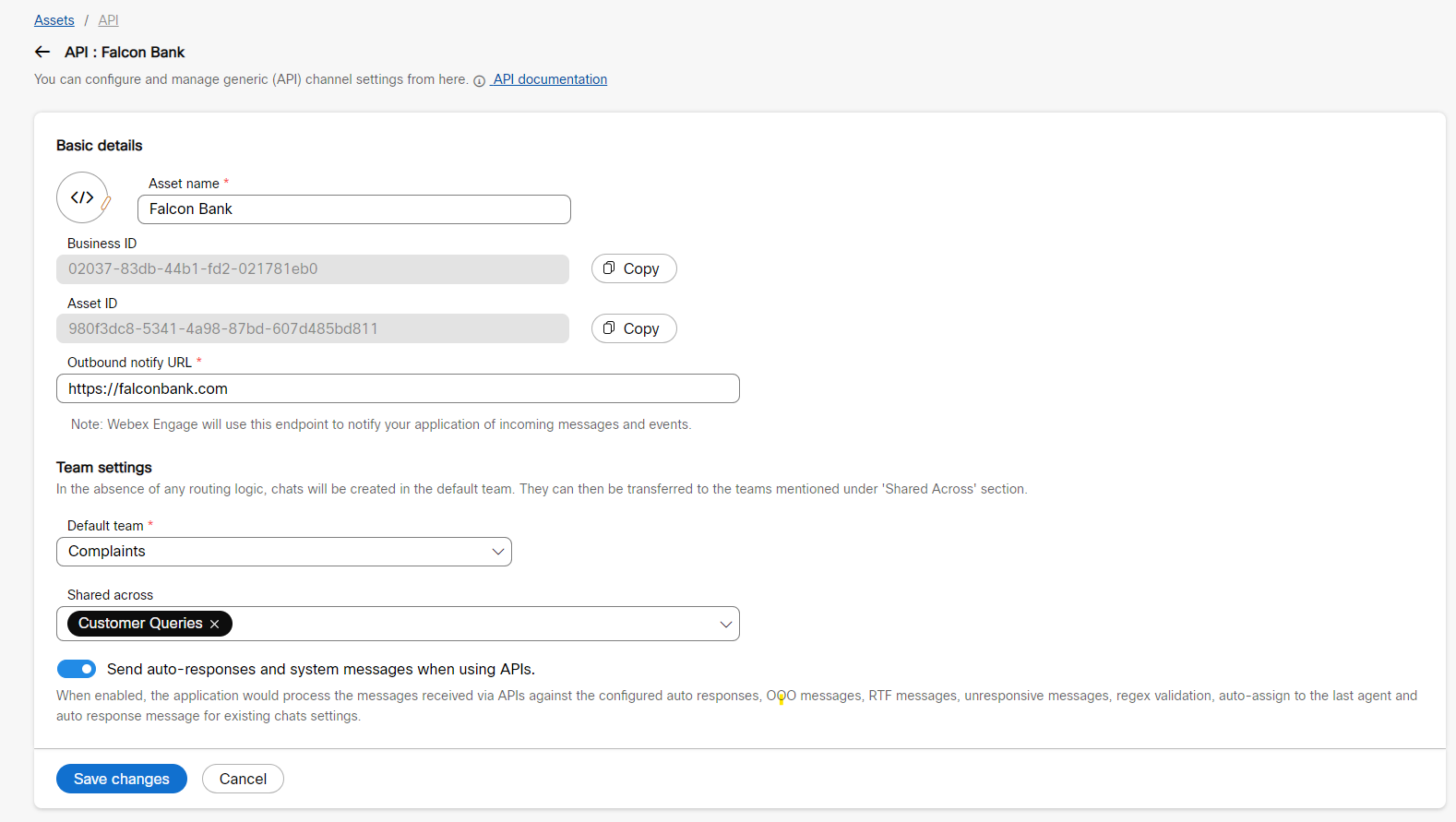
- Edit the required fields and click Save changes.
A success message appears on the screen.
Update priority
To update an API asset's priority, follow these steps:
- Login to Webex Engage.
- Click the Try new version button on the top-right corner of the application.
The Webex Engage React application will launch. - Navigate to Assets> Channel assets.
- Click the API channel tab.

- Click the Update priority icon in the Actions column of a specific asset.
The following pop-up window will appear on the screen.
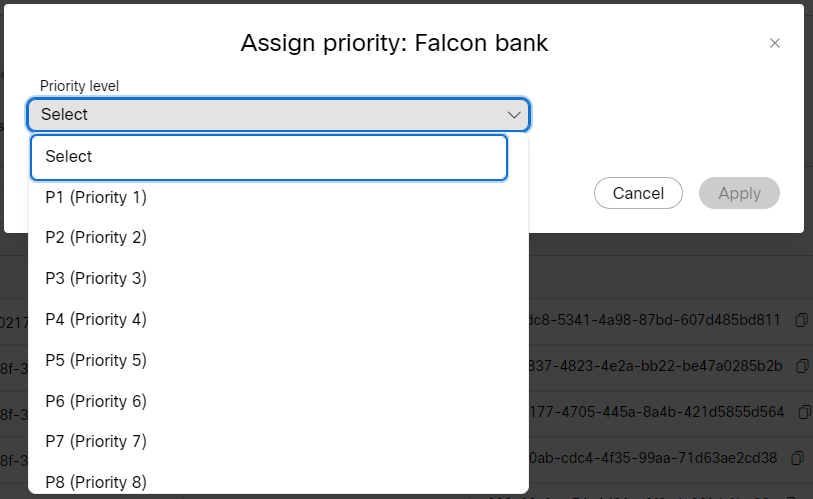
- Select a Priority from the Priority level drop-down and click Apply.
- If you select a priority other than P1, then the Auto escalation rule(s) toggle appears.
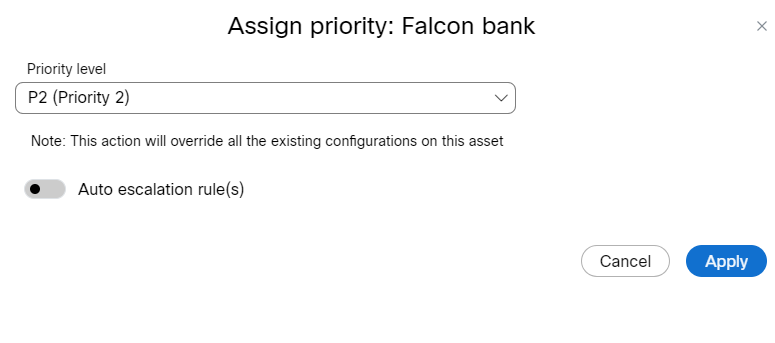
- If you turn ON the Auto escalation rules(s) toggle, the auto escalation configuration options will appear.
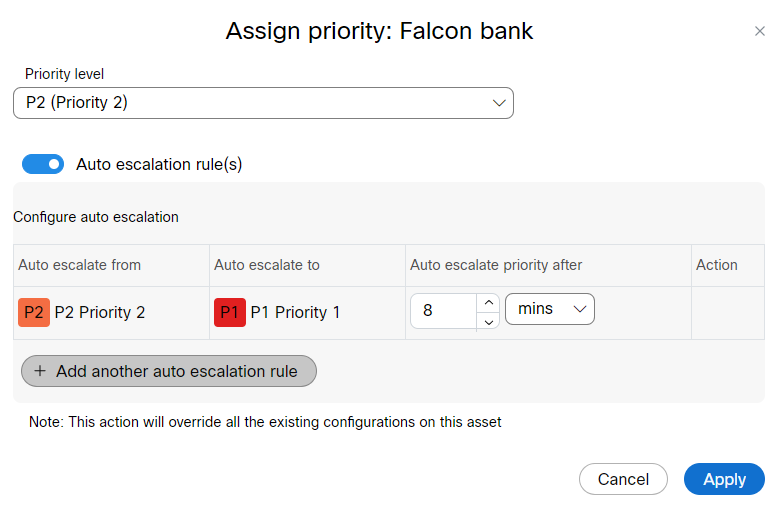
- Select the escalation time from the Auto escalate priority after drop-down in minutes and click Apply.
Note
- As per the chosen priority, you can add number of escalation rules.
Example: If you select priority as P2 then you can add one escalation rule. If you select priority as P3 then you can add two escalation rules, etc.- If you select priority as P1 then the Auto escalation toggle will be greyed, and you cannot select it.
Search an API asset
To search for an API asset, follow these steps
- Login to Webex Engage.
- Click the Try new version button on the top-right corner of the application.
The Webex Engage React application will launch. - Navigate to Assets> Channel assets.
- Click the API channel tab.

- Enter the search criterion in the Search input field above the table results.

The respective results will appear on the screen.
Customise display of table
The Customise Display helps you select a list of columns you want to preview in the table results.
To view customise table results, follow these steps:
- Click the Customise display drop-down on the top-right corner of the results table.

- Choose the required columns from the list by selecting the checkboxes adjacent to each column name.
You can instantly view the results on the screen by checking and unchecking the checkboxes.
Note
By default, Asset name and Actions columns are preselected and cannot be disabled.
Updated about 2 years ago
